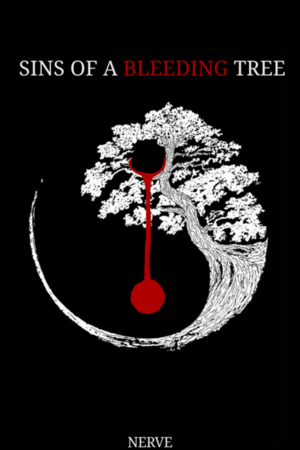Chapter 1:
Chapter 1: The Weight of Weakness
Without Ornaments
I set a small pot of water above the flame. The same dented copper pot as always. It wasn’t elegant, but it had served its purpose through years of wear. I sighed. The water would take its time to boil, like everything else in this place. Nothing urgent, nothing worth hurrying.
As usual, I reached for a bottle of absinthe left on the sideboard. The glass was warm to the touch, not chilled, but it didn’t matter. Rituals don’t need to be perfect—they only need to exist.
I climbed the narrow staircase to the upper floor, the wood creaking beneath each step, my dogs padding after me. The flat was small, cramped, hardly more than a crooked room stacked upon another. Not even a true home. A rented shell, plagued with cracks and drafts I never bothered to mend. Still, it was mine for now. That fact alone gave it a certain gravity. And it stood near the heart of the city, close enough to hear its pulse at night—the music halls, the carriages clattering, the distant laughter.
I stepped out onto the balcony, pushed open the tall window, and poured the drink. Leaning against the cold wrought-iron railing, I let out another sigh.
It wasn’t yet late, but summer was collapsing into autumn, and the daylight was retreating faster with each passing evening. Shadows stretched earlier across the cobblestones, three minutes less each day, if the papers were to be believed. Three minutes—insignificant, they would say. Yet when you count them, when you live them, you feel every single one.
From a distance—or as much distance as the fourth floor could grant me—I caught sight of people strolling below. Many of them, at this hour, were parading their pets. Most were wealthy, their pockets swollen with money they hadn’t earned, their every step flanked by a pair of ladies-in-waiting or liveried servants who followed them as if their shadows required human form.
They disgusted me.
I had two dogs myself, practically extensions of my own body, yet I never needed a retinue to walk them, never required a handmaid to ensure they did not soil the parlor rug. Some things you simply did yourself.
But it didn’t matter. That world wasn’t mine.
I had grown used to living among the newly rich—people swollen with airs of grandeur their dull minds could never sustain, men and women who fancied themselves nobility yet stumbled in their own affectations.
No, I wasn’t wealthy. Far from it. God, if only. I had simply been lucky enough—or unlucky enough, depending on how one framed it—to end up in that miserable dwelling I called home. In truth, I was nothing more than a pariah lodged in a quarter of cockroaches who believed themselves butterflies.
I lifted the glass to my lips and drank deep, the bitter taste of absinthe coating my tongue, the sting lingering in my throat. I took another swallow, longer this time, until I nearly coughed from the force of it. The warmth slid down into me like a dull blade, blunt but insistent, leaving behind a faint fire that did little to comfort.
The night had begun to settle in earnest. Shadows thickened around the terrace, swallowing the outlines of the buildings opposite until only their vague shapes remained, black against a darker black. The gas lamps flickered on in the streets below, halos of weak light that seemed more decoration than illumination. I could barely see beyond the reach of my own hands.
At my feet, the dogs lay sprawled across the tiles, utterly unconcerned. Their breathing was steady, untroubled, their presence a small proof of loyalty that required no ornament, no grand gesture. The world passed them by without consequence, and in truth, it passed me by as well. What difference did it make, whether the night deepened or the city carried on below with its endless parades of laughter and noise?
I remained leaning against the cold railing, staring downward at the street as if distance could make me safer, as if height alone placed me beyond the reach of everything I refused to belong to. The view from the fourth floor was not much, but it was enough to remind me that I preferred looking from above rather than being among them.
I raised the glass once more, the liquid catching a dim reflection from the nearest lamp. This sip I took slower, shorter. Measured. The bitterness lingered, sharp and familiar, like something I had resigned myself to long ago.
And then, just as I drained the last drop from my glass, I saw her.
A young girl—no more than sixteen or seventeen—being wheeled along the street. Even from the distance of my fourth-floor balcony, I could see how fragile she was, how the very act of breathing seemed too heavy a burden for her frail chest.
A cripple, I thought.
Sooner or later, God would take her—merciful to her, and merciful to the rest of us, sparing the world from the weight of carrying her. The thought came to me coldly, without pity, sharp in its cynicism, as natural as breathing.
She was pushed forward by a woman so obese she looked fit to burst, clumsy as a goose, sweating like a pig under the strain of her own bulk. Each step she took seemed uncertain, as though her swollen legs might betray her at any moment, as though her own body were conspiring to topple her face-first into the cobblestones. I could almost imagine it—her collapsing in the middle of the street, dragging the chair with her, setting off a panic on the boulevard that still remembered the chaos of the last great flood, when bodies were swept away like refuse.
The thought nearly made me laugh, but it didn’t. Instead, something twisted in me, and to my surprise, I felt a flicker of pity—for the girl in the chair, condemned to such dependence, and for the grotesque creature entrusted with her care, who could barely manage her own breath.
They inspired pity, yes, but also disgust. Both of them. The sight repelled me, like watching decay dressed up in ribbons, paraded out into the gaslit evening for all to see.
Still, I kept watching them. Intrigued in spite of myself. I poured another glass and let the bitterness slide down my throat as my eyes followed their slow progress through the night.
Halfway down the boulevard, they stopped. Likely so the corpulent caretaker wouldn’t collapse from a heart attack mid-promenade, dragging her fragile mistress into the gutter with her.
There was a bench nearby, just in front of my building. The wood was rotting, weather-worn, its paint long surrendered to time. No one had thought to repair it in years.
When I saw them pause before it, I thought: the fat cow will sit, and the cripple will—of course—remain seated. A black little joke, amusing only to me, and for no longer than half a second.
The servant maneuvered the chair to face the bench and stopped. And then the girl—delicate, frail as glass—refused the woman’s hand. No complaints, no harshness, not even a gesture of irritation. Simply, she tried.
Clumsily.
Again and again, she leaned forward, pressing her forearms against the armrests, attempting to lift herself. Each time she faltered, her weak legs trembling beneath her, nearly sending her sprawling. The chair groaned and wobbled under the strain, threatening to tip over completely.
It was almost pathetic, that repeated struggle, like watching a bird beat its wings against a closed window. And yet, in one final effort—against all reason—she rose.
Unsteady, but upright.
She clutched the back of the bench for balance, then lowered herself onto it. Alone. Without the bloated servant’s intervention, without anyone’s hand to steady her. In truth, the woman seemed too busy keeping her own lungs from betraying her.
The girl exhaled, but not with relief. It was something else—something sharper. The sigh of triumph, of a victory no one else might notice. Her eyes gleamed in the lamplight, defiant and alive.
And I could not look away.
I was...
Fascinated.




Please sign in to leave a comment.